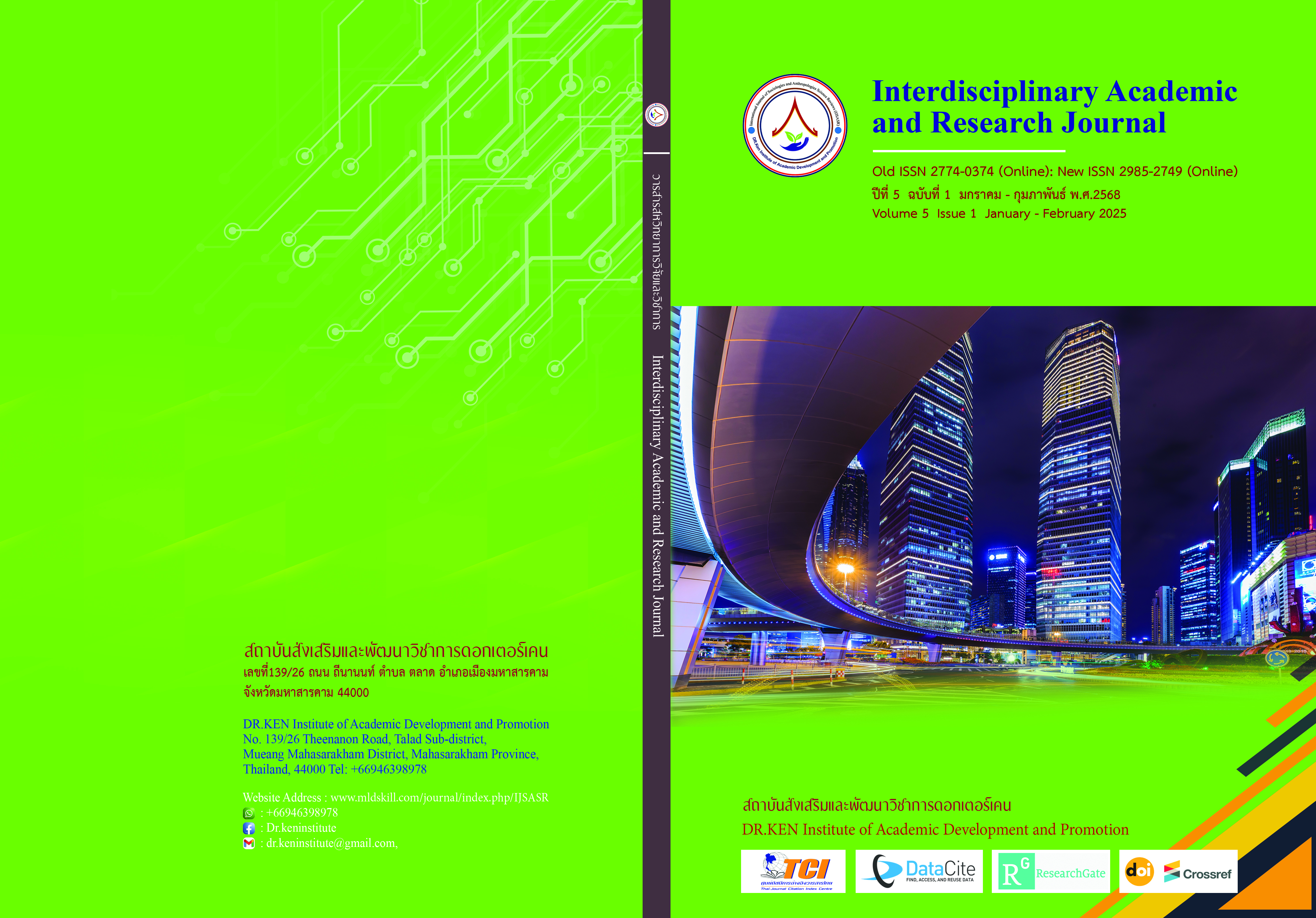Educational Institution Administration Toward Excellence
DOI:
https://doi.org/10.60027/iarj.2025.273906Keywords:
Administration, Educational Institution, ExcellenceAbstract
Background and Aims: Educational institutions need to be effectively managed to foster an environment that supports both high academic achievement and personal development to guarantee that students receive a high-quality education. Effective management also enhances resource allocation, curriculum implementation, and staff morale, all of which contribute to the institution's overall excellence and reputation. This paper aims to collect concepts and principles of educational administration towards excellence. Content from various reliable sources has been analyzed, reasoned, and written academically.
Methodology: This study is a study of concepts, theories, and academic documents. The content is analyzed and then presented descriptively according to the objectives.
Results: The administrator of education who elevates the quality of the educational establishment, there must be 10 important principles, consisting of 1) The organization's leader must have a clear vision, 2) Focusing on learning as the core, 3) Organizational learning, 4) Giving value to teachers, personnel, and participants, 5) Agility, enthusiasm, 6) Looking to the future, 7) Managing for innovation, 8) Public/social responsibility, 9) Focusing on results and creating value, and 10) Systemic management.
Conclusion: Administrators must abide by ten fundamental principles, such as having a clear vision, emphasizing core learning, and valuing all stakeholders, to improve the quality of educational institutions. Together, these values create a progressive, creative, and goal-oriented atmosphere that guarantees systemic and long-term quality in education.
References
กระทรวงศึกษาธิการ. (2549). การพัฒนาโรงเรียนสู่ความเป็นเลิศ. กรุงเทพมหานคร: ไทยวัฒนาพานิช.
พระธีรพัฒน์ กุลธีโร. (2564). การบริหารสถานศึกษาสู่ความเป็นเลิศ. วารสารนวัตกรรมการพัฒนาจิตและปัญญา,1(1), 43-49.
สมาน อัศวภูมิ. (2551). การบริหารการศึกษาสมัยใหม่: แนวคิด ทฤษฎีและการปฏิบัติ.พิมพ์ครั้งที่ 4. อุบลราชธานี: หจก.อุบลกิจออฟเซทการพิมพ์.
Fullan, M. (2011). The Six Secrets of Change: What the Best Leaders Do to Help Their Organizations Survive and Thrive. Jossey-Bass.
George Couros, G. (2010). The 21st Century Principal. Retrieved from: http://connectedprincipals.com/archives/1663.
Leithwood, K., Seashore Louis, K., Anderson, S., & Wahlstrom, K. (2004). How Leadership Influences Student Learning. The Wallace Foundation.
Maxine (2015).The 4 Types of School Principals. Retrieved from: htp://mawiasgedom.com/the-4-typesofschool-principals/
Robinson, V. M. J., Lloyd, C. A., & Rowe, K. J. (2008). The impact of leadership on student outcomes: An analysis of the differential effects of leadership types. Educational Administration Quarterly, 44(5), 635-674.
Downloads
Published
How to Cite
Issue
Section
License
Copyright (c) 2025 Interdisciplinary Academic and Research Journal

This work is licensed under a Creative Commons Attribution-NonCommercial-NoDerivatives 4.0 International License.
Copyright on any article in the Interdisciplinary Academic and Research Journal is retained by the author(s) under the under the Creative Commons Attribution-NonCommercial-NoDerivatives 4.0 International License. Permission to use text, content, images, etc. of publication. Any user to read, download, copy, distribute, print, search, or link to the full texts of articles, crawl them for indexing, pass them as data to software, or use them for any other lawful purpose. But do not use it for commercial use or with the intent to benefit any business.
















.png)


